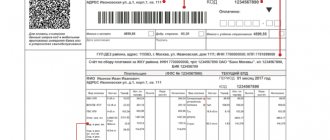The deadline for payment of housing and communal services by apartment owners and tenants is established by the Housing Code - until the 10th day of each month. Specialists from the GU IS Coordination Center have compiled the top main reasons why Muscovites are in no hurry to pay for what they receive.
Modern gadgets will help distracted citizens. In the application on your mobile phone, in a couple of minutes you can set up alerts for the whole year, and at the right time an SMS message will remind you of the upcoming payment. And of course, you need to regularly check your mailbox, in which the current single payment document, the debt single payment document or a notification of debt are waiting in the wings.
What are utilities?
Utilities (CS) are the result of activities aimed at maintaining safe and comfortable operation of residential or commercial premises by the user.
In turn, the right to use such services belongs to:
- owners of premises and members of their family;
- citizens who received real estate from a cooperative;
- persons renting residential or commercial premises in an apartment building.
The consumer of utility services can be either an individual or a legal entity, individual entrepreneur.
Housing and communal services (HCS)
If everything is clear with housing and communal services, then many still have one more question: housing and communal services - what is it?
Housing and communal services are a full range of activities aimed at maintaining and operating housing.
In addition to housing and communal services for the supply of water, electricity, gas and heat, housing and communal services also include repairs of buildings and structures, waste collection and removal, concierge services, maintenance of elevators in apartment buildings and much more.
Payment for these services is made monthly and is reflected in receipts. The services provided may vary depending on what exactly was specified in the agreement with the utility provider.
Below is a list of what may be included in housing and communal services payments:
- maintaining housing in a comfortable and safe condition for living, responsibilities for repairs: major, unscheduled and routine;
- waste removal: waste, garbage chute;
- 24-hour security and guarded parking;
- cleaning elevators, entrances, adjacent and common areas;
- concierge services, etc.
Simply put, what is public utilities ?
This is the entire collection of various enterprises and services serving the population. It includes housing and communal services, ventilation, low-current networks, fire safety, elevator facilities, sanitary and epidemiological treatment of premises, landscaping and much more.
Obligations of management companies and housing and communal services
General household needs that are satisfied by management companies, housing and communal services and other relevant structures are also included in the cost of utilities. Every resident should know what exactly he is paying for and whether he is getting what he is paying for.
General utilities include:
- Optimal temperature maintenance and lighting of common areas;
- Cleaning the local area, removing garbage, maintaining sanitary standards;
- Monitoring fire safety standards;
- Landscaping and landscaping of the local area;
- Carrying out current and major repairs of common areas, including the roof;
- Preparatory seasonal work;
- Costs of maintaining common property;
- Carrying out inspections of common areas.
Additionally, there may be other clauses that are included in the contract individually. If you need to find out exactly what additional utilities these are and what else they include, you can contact the management company or housing and communal services. Often such a need arises from overly vigilant citizens or in cases of unscrupulous performance by governing bodies of their duties.
Payments for housing and communal services in 2021 will increase by an average of 4%
On average in Russia in 2021, the amount in the monthly payment of Russians for housing and communal services (HCS) will increase by 4%. Izvestia reported this on Thursday, December 10, citing the words of Deputy Head of the Federal Antimonopoly Service (FAS) Vitaly Korolev. The official said that the new tariffs will come into force on July 1.
According to Korolev, the average price increase of 4% does not mean that this will happen in every region. Local authorities themselves will set the maximum threshold for the total increase in utility bills, the official clarified. Government order regarding price calibration for inflation dynamics
concerns the cost of providing gas, heating, electricity, hot and cold water, sewerage and waste removal.
For comparison, in Chechnya, for example, the threshold for price increases is set at 6.5%, in Yakutia - 6%, in the Novgorod region - 6.4%, in the Murmansk region - 3.2%, in Magadan - 3.8%, in the Penza region - 3.4%, according to the government order. The average is about 4%.
“The FAS regularly monitors compliance with the indices established by the government,” the newspaper quotes Vitaly Korolev.
Previously, the FAS prepared a draft government resolution, according to which the maximum level in electricity tariffs could increase above what is permitted when installing so-called “smart” meters. The problem is that, according to the new rules, Russians are required to install “smart” meters when replacing them from July 1 of this year, and from January 1, 2022, all meters must become “smart.”
No exceptions are provided in the event of an increase in maximum electricity rates due to the installation of such expensive devices,
Deputy head of the FAS told Izvestia. And the question of where to get the money to install these devices in Russians’ apartments and transmit readings from them is now being discussed in the government.
The Ministry of Construction is convinced that it is unfair to shift these costs onto the shoulders of Russians, who have suffered so much economically during the pandemic. The new devices themselves will pay service providers for their installation costs, the department proposed a solution.
“Devices integrated into the smart system should significantly reduce the commercial losses of electricity suppliers, and these savings will also help pay for the installation of new meters,”
- noted the press service of the Ministry of Construction.
An expert of the All-Russian Popular Front (ONF) movement, Pavel Sklyanchuk, recalled that for housing and communal services, bills paid by citizens are not the only source of income; there are also large subsidies from the budget. But price increases due to inflation are inevitable, he believes. Utility companies need to take into account rising fuel prices, carry out infrastructure repairs, and pay wages to employees, the ONF member listed.
The Ministry of Construction, in turn, recalled that housing and communal services enterprises have almost no money left to modernize the utility infrastructure and the supposedly strict state tariff regulation and the debt of citizens for the services provided are to blame for this.
Now the level of deterioration of communications in the country on average is estimated at approximately 60%.
Even to maintain the current state of housing and communal services facilities, a lot of money is needed, the Ministry of Construction explained.
The renovation of heat supply, water supply and sanitation networks alone requires several trillion rubles, this is the total estimate given by regional housing and communal services complexes, the ministry noted. As expected, the situation in large cities is a little better, said Sergei Minko, general director of Urban Innovative Technologies PJSC.
“Today it is impossible to single out regions with the most difficult situation, since it is necessary to consider the financial and economic state of each individual utility enterprise,” said Svetlana Razvorotneva, executive director of the NP Housing and Communal Services Control, in turn. “In the country as a whole, water utilities are the most underfunded.”
The Ministry of Construction said that various programs and tools are being prepared to solve all these problems. Their goal is one - to find investment money, and, apparently, this problem cannot be solved without government money.
Types of utilities
There are several types of housing and communal services, each of which has its own purpose and operating features.
We will provide a complete list of what is included in housing and communal services, and also indicate the features of each type:
- Cold and hot water supply – supply of cold water to residential and non-residential premises of an apartment building, common premises, residential buildings. Supply is carried out through centralized water supply networks and in-house systems. If they are not available in the house, water can be supplied to the water tap. The supplied water must be suitable for drinking, cooking and household use. In addition, it must comply with temperature standards.
- Water disposal is the removal of wastewater from all premises to which water is supplied. It is carried out through central sewerage networks and the house’s own systems.
- Electricity supply – supply of electrical energy through central and intra-house networks. It is used to ensure comfortable living and sufficient use of various equipment in residential and non-residential premises. It is through the power supply that lighting is provided for both common areas (entrances) and local areas (parking lots, playgrounds). In addition, the electricity supply ensures the operation of elevators in apartment buildings.
- Gas supply – supply of residential and non-residential premises with gas using special systems or, in the absence of such systems, supply of cylinders with household gas.
- Heating is the supply through networks of heat energy necessary for heating residential and non-residential premises, as well as the sale of fuel for stove heating. Heating must be supplied on time in accordance with climatic conditions and the timing of the heating season, as well as in sufficient quantities to ensure the required temperature conditions in the premises.
Payment of utilities through mobile banking
Mobile banking is another convenient and affordable way to pay bills. To perform the operation you must:
- create an SMS request for the bank you are using;
- receive an SMS with a code with which you need to confirm the transaction (with the relevant details);
- send a message to the banking organization to confirm the operation.
Controlling incoming messages is a necessary measure that resolves issues of duplication of financial transactions. If the system recognizes two messages that are identical in meaning, then the subscriber will receive an error notification. To confirm the transaction, you must resend the corresponding SMS after sixty minutes. When creating an SMS, indicate:
- recipient code;
- requisites;
- enrollment period (not required to be filled out);
- the last four digits of the card number.
The subscriber learns about the successful completion of the procedure from a message sent by the system to inform the client. Using mobile banking, you can quickly find out information about debts, overpayments and other important data.
Utility providers
It is not uncommon for residents of apartment buildings to be unable to answer the question of who provides their home with the benefits of civilization. This is done by a legal entity, regardless of its form, or by an individual entrepreneur who provides housing and communal services to consumers.
Performers can be:
- homeowners association;
- housing cooperative;
- housing construction or other specialized consumer cooperative;
- management organization;
- resource supply organization.
The performer is obliged:
- provide housing and communal services in the required volumes and proper quality;
- technically maintain the building's engineering systems and metering devices;
- make calculations of the amount of payment for housing and communal services and monitor their correctness;
- take readings from common house metering devices;
- provide complete information about yourself, calculated payments, the procedure for calculating fees for housing and communal services, etc.
Payment of utilities through the homeowners association
The HOA accepts both cash and non-cash payments. Residents with an agreement that specifies:
- the name of the homeowners association;
- first name, last name and patronymic of the chairman of the homeowners association;
- grounds for recognizing the validity of the contract.
The homeowners' association, as a separate organization, guarantees citizens not only the performance of various works and services. The powers of the homeowners' association also include the transfer of utilities in the following areas:
- use of hot and cold water;
- water disposal (wastewater);
- central heating system;
- electricity consumption.
Each homeowners association must have its own accounting department, which records the purpose of using funds. The receipt from the homeowners association states:
- selected tariff;
- payer data;
- information about the provision of additional services.
The partnership can only exist at the expense of the residents. However, utility payments are never distributed for the purposes of current or major repairs; they are immediately transferred to the necessary organizations.
Current standards
The changes that affected the rules for the provision of utility services include not only the division of responsibilities into items, but also the procedure for calculating and paying for receipts. Not counting heating, payment is divided into a common house payment and individual payment for each apartment owner. Receipts also arrive separately.
Innovations also affected regulatory coefficients. This was done in order to encourage citizens to install individual meters in their apartments. The principle turned out to be very simple: for those who have the technical ability to install a meter, but did not do so, an increased standard was introduced for all types of public services. Further, for the same category of the population, the tariff increased every six months by ten percent to a limit of sixty percent. In other words, further refusal to install meters is fraught with an overpayment of sixty percent just two years after such an innovation, which was approved back in 2013.
The only advantage of such a change is the fact that this percentage overpayment is aimed at saving energy and increasing the efficiency of existing systems.
Procedure for calculating utility bills
The accrual procedure depends on whether individual metering devices are installed or the amount of resources is determined by common house meters. Utility payments for apartment residents also include expenses for the general needs of the apartment building.
If there are meters, payments are calculated based on indicators that are recommended to be recorded approximately on the 20th of each month. In addition, devices are required to be checked every 6 months upon prior notification to residents.
In the absence of individual metering devices, rent is calculated in accordance with the tariff standards established in the given region.
How do you pay for housing maintenance?
The maintenance and ongoing repairs of residential real estate, namely common areas, are paid for in a standard receipt for housing and communal services. This is done in one column, that is, the owners see only the maintenance of the property in the purpose of payment. This includes all services listed in the agreement with the management company or HOA. And what is included in housing and communal services - for example, heating, water, electricity - is paid separately, using common house or individual metering devices.
If the management company charges for any services that are included in the maintenance of housing in a separate column, this is illegal. This results in double payment. For example, a situation may arise when the management company requires a separate payment for sewerage. Transportation of liquid waste is already included in the maintenance of the property, and you pay for it when you pay this column. If you also pay separately for sewerage, the management company or homeowners association will put this money in their pocket.
You have the legal right not to pay for certain columns, but only if the services for which payment is required are the responsibility of the management company.
If you notice separate lines in the receipt, services in which are already included in the maintenance of housing, write a collective complaint with your neighbors to the management company or HOA. They will be obliged to correct the situation. If this does not happen, write a complaint to Rospotrebnadzor. If this does not help, hire a lawyer and go to court.
Payment procedure for utilities
The executing organization must provide its users with the procedure for paying for utility services by including the relevant clauses in the contract, and also posts up-to-date information on the official website or on stands at the entrances of apartment buildings.
Making monthly payments to pay for consumed resources is made based on:
- invoices provided by the contractor and containing detailed information on the amount and repayment terms;
- data posted on Internet resources.
The deadlines for paying utility bills in 2021 are set in several ways:
- Based on Art. 155 of the Housing Code of the Russian Federation, payment must be made no later than the 10th day of the month following the billing month.
- Based on the agreement concluded between the service provider and the contractor. In this case, the deadlines may differ from those established by current legislation.
In case of failure to comply with the deadlines established by the executing company or the state, penalties in the form of interest may be applied to the violator.
Payment of utilities through the terminal
Today, payment terminals are the fastest and most convenient way to pay for goods and services. It is suitable for active people who have to visit different places in the city every day. In the absence of access to the Internet, the terminal is the most accessible method with which you can pay off almost any debt. Algorithm of actions for performing an operation:
- "Payments" item;
- selection of the required type of services;
- entering information about the location and company that maintains the house or apartment;
- the next paragraph is an indication of the amount and personal account;
- depositing cash into a bill acceptor.
The terminal is a very reliable equipment, so you should not think about risks when making a financial transaction. Each terminal issues a receipt with all the necessary information. You can find it in a branch of Sberbank, which has an excellent reputation today. When choosing an organization, you need to consider what commission will be requested for the operation.
Payment of utilities by legal entities
A CG consumer can be not only an individual, but also a legal entity. Depending on the basis on which the premises were transferred to the legal entity, payment for utilities can be made:
- Directly to the service provider. In this case, payments can be made by both premises owners and tenants.
- The owner of the premises. If the use of square meters is made on the basis of a lease agreement, payments for utilities can be transferred directly to the owner of the property (after providing a receipt or any other supporting document).
So, legal entities pay for the resources provided on the basis of documents, within the time limits specified in the current legislation or agreement, by cash or bank transfer.
Some nuances
Let's consider the features of payment for utilities by tenants of premises and organizations.
When paying rent
The rental of premises is formalized by an appropriate agreement between the owner of the living space and the tenant. The terms of payment for utility services are stipulated in the specified agreement.
The following options for the relationship between the parties are provided:
- fiduciary - the owner pays utility bills using funds received from the tenant;
- self-payment - settlements with utility organizations are transferred under the responsibility of the tenant, in accordance with actual meter readings.
Sometimes the provisions of the contract do not determine the payment procedure. But legislative norms provide that the payer of utilities, if there is a lease agreement, must be the entity renting the premises. In this case, the owner is obliged to monitor the timely payment of bills.
What should a legal entity pay for?
Legal entities, along with individuals, are required to pay for consumed resources. Payment is made in accordance with concluded agreements with management or utility companies according to the readings of individual metering devices. Legal entities pay for services in the same way as an ordinary consumer, including costs for servicing residential and non-residential buildings.
But if the resources are used for production activities, the company's relationship with the service provider is governed by a separate agreement that determines the payment procedure.
Is it possible to reduce the amount of payment for housing maintenance?
Owners are often dissatisfied with the amount of payments for property maintenance and other services included in the receipts. Especially if they were not at the general meeting and are not familiar with the list of works that the management company performs.
If the amount to be paid seems too high to you, you can reduce it.
For this:
- initiate a general meeting of all apartment owners in an apartment building;
- ask representatives of the HOA or management company to justify the amount to be paid, that is, list the work they plan to carry out;
- discuss with other owners the need for work that will be carried out by managers;
- refuse some work - in this case, the management company will recalculate payments and you will pay less.
Take into account an important nuance: those works that you refused will have to be completed independently. That is, homeowners can actually refuse any services, but then their implementation will fall on the shoulders of the residents. For example, if apartment owners refuse to remove solid waste at inflated rates, they will have to independently, without the participation of the management company, look for a company that will remove garbage, enter into an agreement with it and pay for the services.
If all the services provided by the management company are necessary, but the amount in the receipt is higher than that of homeowners in other buildings in your area, request a detailed report. Ask representatives of the management company to explain in detail why the provision of services costs exactly that much and what the cost consists of. Perhaps the prices for some work are simply too high - in this case, you can also write a collective complaint and ask to optimize costs.
Is it possible to refuse certain types of services?
Additional services, in the form of intercom equipment, Internet connection or cable television, do not apply to housing and communal services. The consumer has the right to refuse this type of service if he does not feel the need for it. Residents cannot be forced to use or pay for these services.
If the management company includes payment for an intercom or other service in the consumer’s bill, the homeowner can write a refusal statement. In the future, this amount is excluded from the housing and communal services account items.
But all residents are required to pay the costs of maintaining common property - an elevator, a garbage chute, building repairs. Residents of the house enjoy the benefits provided, so refusal to pay for these services is unlawful.
Privileges
In an unstable economic situation, paying for utilities becomes simply unaffordable for some categories of citizens.
That is why the Government of the Russian Federation supports the population by introducing benefits for:
- large families raising three or more children under 18 years of age;
- WWII participants and members of their families;
- disabled children, groups 1 and 2;
- participants in combat operations, persons performing public service, labor veterans;
- residents of besieged Leningrad;
- honorary donors of the Russian Federation and the Soviet Union;
- persons injured during the Chernobyl accident.
Benefits provided to certain categories of citizens extend to utilities and housing services.
What happens if you don’t pay for housing maintenance?
According to RF Article 158 of the Housing Code, owners of apartments in apartment buildings are required to bear the costs of the premises they own, including paying for the maintenance of housing using receipts.
If you stop paying for the maintenance of your home, you will first be charged a penalty - that is, a percentage of the unpaid amount. The longer you don't pay, the more debt you will end up with. Then, if you ignore all demands for payment, the management company or HOA will go to court. He will oblige you to pay the debt and the established penalties, and if you do not do this within the agreed period, he will transfer the case to the bailiffs. They may describe your property or restrict your travel abroad as a debtor.
If you pay for water, electricity, heating and gas, the management company does not have the right to turn them off even if you have a debt for housing maintenance. If any resource is turned off for you, you can safely contact the prosecutor’s office or other supervisory authorities: this is illegal.
If you do not own the property, but rent it under a social tenancy agreement, the municipality may kick you out. According to the agreement, the person living in the apartment under it is obliged to bear current expenses - that is, pay for the maintenance of housing and utilities, as well as maintain the proper condition of the apartment itself.
What does the fee for housing and utilities include?
— Payment for residential premises and utilities for the tenant of residential premises occupied under a social tenancy agreement or a rental agreement for residential premises of the state or municipal housing stock includes: 1) payment for the use of residential premises (rental fee); 2) payment for the maintenance of residential premises, including fees for services, work on managing an apartment building, for the maintenance and current repairs of common property in an apartment building, for cold water, hot water, electrical energy, thermal energy consumed in the maintenance of common property in an apartment building, as well as for the disposal of wastewater for the purpose of maintaining common property in an apartment building (provisions on including in the payment for the maintenance of residential premises the costs of paying for cold water, hot water, electrical energy, heat energy consumed in the maintenance of common property in apartment building, wastewater disposal for the purpose of maintaining common property in an apartment building applies from April 1, 2021). Major repairs of common property in an apartment building are carried out at the expense of the owner of the housing stock; 3) payment for utilities. — Payment for residential premises and utilities for a tenant of residential premises under a rental agreement for residential premises of a social housing stock includes: 1) payment for renting residential premises; 2) payment for utilities.
— Payment for residential premises and utilities for the owner of premises in an apartment building includes: 1) payment for the maintenance of residential premises, which includes fees for services, work on managing an apartment building, for the maintenance and current repairs of common property in an apartment building, for cold water, hot water, electrical energy, thermal energy consumed in the maintenance of common property in an apartment building, as well as for the disposal of waste water for the purpose of maintaining common property in an apartment building (provisions on including the cost of payment in the payment for the maintenance of residential premises cold water, hot water, electrical energy, thermal energy consumed in the maintenance of common property in an apartment building, waste water disposal for the purpose of maintaining common property in an apartment building apply from April 1, 2021); 2) contribution for major repairs; 3) payment for utilities.
Utility fees include fees for hot water supply, cold water supply, sewerage, electricity supply, gas supply (including the supply of domestic gas in cylinders), heating (heat supply, including the supply of solid fuel in the presence of stove heating). The owner of premises in an apartment building is obliged to bear the costs of maintaining the premises belonging to him, as well as to participate in the costs of maintaining common property in an apartment building in proportion to his share in the right of common ownership of this property. The obligation to pay the costs of major repairs of an apartment building applies to all owners of premises in this building from the moment ownership of the premises in this building arises.
Legal basis
The legislative act regulating relations in the field of corporate governance is Decree of the Government of the Russian Federation No. 354 of 05/06/2011.
This document establishes the rules for the provision of utility services to users and also reflects the main changes:
- information on the revision of coefficients used in calculating tariffs for gas utilities;
- information about tariff changes;
- information about changes in the installation procedure for metering devices.
The basic rights and responsibilities of homeowners related to the creation of an HOA, payment of utilities and the choice of a management company are reflected in the Housing Code of the Russian Federation (sections VI, VII, VIII, respectively).
Another important document regulating the methodology for accounting for utility services is Rosstat Order No. 234 dated June 26, 2013. The main difference of this legislative act is the fact that the scope of the CG reflects not only the services included in the main list, but also work related to the repair, installation and configuration of operating metering devices.
In addition, in their work to provide resources, housing complex organizations are guided by the Civil Code of the Russian Federation, the Code of Administrative Offenses of the Russian Federation, the Water Code of the Russian Federation, and Federal Laws No. 69, No. 210.
General points
The provision of services for the maintenance of residential space depends on the type of development and the organization system chosen by the residents:
- private sector homeowners receive utility services directly from supply companies, according to concluded agreements. Owners have to decide issues of housing maintenance themselves;
- Residents of apartment buildings sign agreements with homeowners associations or management companies. It is possible to organize housing cooperatives. These structures interact with utility organizations - resource suppliers, are responsible for maintaining the house and surrounding area, garbage removal and solving other pressing issues.
Residents of apartment buildings often have doubts about the validity of the invoice received from the management company.
Basic Concepts
Housing and communal services payments are divided into two categories:
- utilities - mandatory services for the supply of energy resources, including water supply with drainage, supply of electricity, gas and heat, solid fuel (for stove heating). Methods for calculating prices for supplied resources are approved at the national level. But the final tariffs are set by regional authorities, taking into account the organization of the local economy;
- housing - expenses for the maintenance of common property, repairs of building structures, solid waste removal, etc. All residents of an apartment building have the right to determine the relevance of these costs and set the amount of payments. The decision is approved at the general meeting, based on information provided by management companies about the nature of the upcoming expenses.
Any residential premises are equipped with the following mandatory equipment:
- shower, bath, sink with working faucet;
- heating system;
- power supply with sockets and switches, other electrical appliances;
- sewerage system.
Objects from the specified list located within the apartment do not relate to public services, but to the means of providing them. The maintenance of this property is the responsibility of the owners.
Who are the obligatory payers?
Housing Code in Art. 153 provides for the need to pay for provided utility services by the following categories of entities:
- for renters of apartments or premises - from the moment of signing the contract;
- tenants or tenants of residential property from municipal or state facilities - from the beginning of the contract;
- members of housing cooperative communities - after receiving living space;
- homeowners - from obtaining the right to own the premises.
The legislation obliges citizens registered for housing to pay for housing and communal services. In fact, persons living in an apartment can pay for utilities voluntarily, after concluding an agreement with the owner.
If payers did not live in the premises, they are exempt from the obligation to pay for services that they did not consume. But this requires proper registration. When a citizen submits an application to the management company, providing documentary evidence of absence from the apartment, the utility fee is recalculated in the prescribed manner.
But the inclusion of expenses for maintaining common property in the payment is not canceled. The resulting debt is a serious obstacle when you intend to sell your living space. Failure to pay threatens the owner with claims filed in court by utility organizations. As a result, you will have to forcibly repay debts, along with accrued penalties.
Legislative norms
Issues of legislative regulation of payment for housing and communal services are regulated by the following regulations:
- Civil Code of the Russian Federation.
- Federal Law No. 261-FZ, signed in November 2009 and regulating energy saving issues.
- Law of the Russian Federation No. 2300-1, adopted in February 1992 and defining consumer rights.
- Housing Code of the Russian Federation.
- The concept of price and tariff policy in the housing and communal services of the Russian Federation.
- Government Decree No. 354 of 05/06/2011, approving the rules for the provision of housing and communal services to the population.
- Rules for the use of public water supply and sewerage systems in the Russian Federation.
- The main directions and mechanisms of energy and resource conservation in the housing and communal services of the Russian Federation.
Additionally, these issues are regulated by local government regulations.
List of utilities in 2021
According to clause 4, ch. II of Government Resolution No. 354, the list of utility services provided to owners and users of residential and commercial premises in 2021 includes:
| Cold water supply | Round-the-clock supply of cold water of proper quality (purified from pathogenic microorganisms, harmful chemical compounds) through a central or intra-house network. |
| Hot water supply | 24-hour supply of hot water of proper quality, temperature from +400 to +750C. A break in the supply of hot and cold water is permissible within 8 hours or a day (subject to major accidents). |
| Water disposal | Discharge of wastewater through centralized networks. |
| Electricity supply | Uninterrupted supply of electrical energy in volumes sufficient to operate appliances installed in an apartment building. |
| Gas supply | 24-hour gas supply via a centralized network. In the absence of the latter, it is permissible to provide the resource in gas cylinders. |
| Heating | Supply of heat energy through centralized or intra-house networks throughout the entire heating season to maintain the temperature in heated rooms at least 180C. We allow a break in supply no more than a day per month, in this case: Ø no more than 16 hours in a row at an average daily temperature of +120C; Ø no more than 8 hours in a row at an average daily temperature of +100C; Ø no more than 4 hours in a row at an average daily temperature of +80C. |
| Solid waste removal | Collection, removal, neutralization and disposal of household waste in quantities generated by users of residential and commercial premises. |
Utilities paid by users cannot include an item that is not related to a specific home, for example, a fee for gas supply, in the absence of it, cannot be charged.
What does the list of housing and communal services for citizens include?
Payment for housing and communal services is calculated in two ways:
- according to the readings of individual metering devices;
- according to consumption standards, calculated according to approved methods, depending on the quantity prescribed for the living space.
Installed individual metering devices must be sealed before being put into operation. It is the responsibility of consumers to regularly provide information about meter readings to the management or utility company. The owner is responsible for the integrity of the seals and timely verification of meters.
If the device malfunctions or the meter verification is overdue, payment is made according to approved standards. Next - more details about the provision of various housing and communal services.
Electricity
Electricity supplied to apartments is paid according to the readings of installed meters. Consumers are forced to pay for the energy spent on servicing common areas - lighting of staircases, entrances, attics and basements, and the operation of elevators.
Unlike utility costs for electricity supplied to apartments, general house payments are calculated according to accepted standards, divided by the number of registered residents.
Legislation limits the maximum duration of interruptions in the supply of resources:
- two hours monthly if the facility is powered from two independent sources;
- days for the specified period, if the source is the only one.
The supplier is obliged to provide electricity with the established parameters, without voltage drops.
Hot and cold water supply
With cold water supply, the consumer is provided with water purified from harmful elements and pathogens.
Interruptions are allowed for a month, with a total duration of no more than:
- eight hours - in ordinary cases;
- twenty-four - in case of a large-scale accident.
For a hot water supply system, the requirements for the duration of interruptions are similar. Additional conditions require compliance with the temperature regime:
- when the water temperature is below plus forty degrees, the consumer can pay for services at cold water supply tariffs;
- Heating above seventy-five degrees is not allowed.
In the absence of common house communication systems, access to a public water stand must be provided.
Heating
Heating must ensure that the air temperature in the room is maintained at least eighteen degrees above zero. During the month, the total duration of interruptions in heat supply should not exceed twenty-four hours.
The following restrictions have been established for one-time interruptions in heat supply:
- at a room temperature above twelve degrees - no more than sixteen hours;
- within the range of ten to twelve degrees - up to eight hours;
- from eight to ten - within four hours.
The size of the payment is affected by the total area of the heated room. Tariff plans are approved by regional regulations.
Water disposal
Houses must be equipped with sewer lines that ensure the removal of consumed water. The drainage system is carried out to ensure proper environmental standards. The sanitary and epidemiological situation in the region largely depends on the condition of sewage drains.
The tariff is set by a resolution of local authorities, but is calculated on the basis of approved national methods. The amount of payment depends on the total volume of cold and hot water consumed.
Solid Waste Disposal
Garbage removal is included in housing payments. Payments for solid waste disposal are calculated according to the area of the apartment. But this situation raises a lot of questions among the population.
Most residents believe that it is more appropriate to determine expenses depending on the number of registered people in the apartment. With this accrual procedure, a methodology similar to the accrual of utility bills will be used.
ODPU fee
ODPU is a common house metering device. These funds are used to determine the amount of payments for energy resources spent on common property:
- the amount of resources on individual meters in apartments is subtracted from the ODPU readings;
- the resulting difference is divided equally between registered residents.
As a result, the management company gets the opportunity to pay suppliers for energy resources additionally spent on maintaining the common household facilities.
Additional services
In addition to the mandatory communal services, the management company or other organizations may offer additional services:
- cable television or internet;
- radio;
- intercom;
- paid parking, etc.
The owner of the living space has the right to choose whether or not to use the specified amenities.
Receipt for housing and communal services: what is included
Housing and utility services included in a single receipt include:
- Water supply;
- Electricity supply;
- Gas supply;
- Heating;
- Drainage;
- House maintenance;
- Carrying out major repairs.
Common services consumed are:
- Cleaning stairs;
- Cleaning the local area;
- Garbage removal;
- Maintenance of internal communications (general plumbing, ventilation, etc.).
All this data is combined into one receipt. This is the actual confirmation of payment and receipt of utility services.
The problem is that such a receipt consists of a very large number of numbers and indicators. However, dealing with them is not as difficult as it seems at first glance.
The payment document consists of:
- Information about the payer (including the area of the premises in which he lives, as well as the number of people living with him);
- Information about the housing and communal services contractor;
- Payer's personal account number;
- Banking details of the management company;
- The final invoice, which indicates the debt, advance payment and the date when the last payment was made;
- Tables indicating the tariffs at which utility bills are calculated, as well as housing maintenance and major repairs;
- Reference information;
- Data on recalculations;
- Settlements related to the provision of deferred payment or its restructuring;
- Consumer Reminders.
The tables consist of two parts. The first of them reflects expenses aimed at maintaining housing, as well as current and major repairs. In the second, the resources consumed, including water disposal, are prescribed.
The payment amount is divided into two parts. The first part is transferred to personal consumption, and the second to general consumption.
The general transcript includes:
- The volume spent on individual needs, and part of the total consumption;
- Current tariff;
- Board size;
- Recalculation;
- Benefits, if any (this also includes compensation and subsidies);
- Total amount.
Payment of utilities through your personal account
There are several options for paying for utilities using the Internet. Using one of the specialized sites, a tenant can create a personal account (PA), through which it is possible to manage all accounts. To create a personal account, you must go through the authorization procedure. Typically the following information is required for registration:
- Email;
- your own password for protection (at least six characters);
- first name, last name and patronymic of the citizen;
- apartment number for which deductions will be made;
- phone number for contacts;
- personal account of the owner or tenant.
Next, you need to enter the text characters from the captcha so that the system can identify the person. The following information will be stored in the personal account:
- history of all deductions;
- invoices issued to the owner or tenant;
- personal data;
- other important information.
Using the capabilities of the personal account, it is possible to get rid of wasting time on re-entering your personal account, bank card number and personal details. You can pay for the necessary services using cards:
- Visa (except VISA Electron);
- MasterCard;
- Maestro of Sberbank.
Special services allow you to quickly find out information about debts or overpayments. You can receive payment confirmation in any convenient way. Enrollment is always carried out within one or three working days.
Contract for the provision of utility services
The management organization provides utility and housing services under a written agreement in accordance with the new Rules. DEZ or another management company concludes it in the case of providing services to a tenant. The Rules specify the terms for the provision and requirements for payment of utility services.
Any consumer has the right to receive housing and communal services that ensure the convenience of living in the house and control its technical condition. For tenants and tenants of housing, a lease or rental agreement must be drawn up. In the absence of a written agreement, the tenant may be denied utility services.
Payment procedure for communal housing and utility services
The 2012 rules for the provision of utility services made it possible to calculate heating standards in a new way. Previously, you had to pay for the entire home area; today, heating common areas is not included in housing and communal services costs. There is also no need to pay for general sewerage. Firm standards have been established for the consumption of total hot and cold water - 90 liters per person every month.
Management companies are aimed at saving common housing and utility services. If the limited standard is exceeded, then the difference is paid by the management organization, not the residents. The exception is HOAs, where the owners themselves decide to pay the difference. If housing and communal services are provided by a resource supplier, then the excess is divided between consumers taking into account the occupied square meters.
What are the risks of chronic debt for housing and communal services?
Any reasons for non-payment of utilities can lead to real problems for the debtor. As soon as the debt reaches two months, the management organization, without a court decision, has the right to turn off hot water, sewerage or electricity. If the amount of debt exceeds 10 thousand rubles, bailiffs have the right to temporarily restrict the right to leave the country. By a court decision, in order to pay off the debt, they can seize household appliances, seize a car and real estate, bank accounts and securities. The tenant of a residential premises under a social tenancy agreement faces eviction from the residential premises at the rate of six square meters per person.
Information about housing and communal services, payment and recalculation rules can be obtained in the “City Advisor” section on the mos.ru website.
Improper fulfillment of contract terms
If the management company still demands payment in full from residents, taking into account all the corresponding tariff increases, but at the same time fulfills its obligations in bad faith or does not fulfill them at all, then the law provides for certain actions. For example, if garbage is not removed in a timely manner, the surrounding area is not cleaned, there are no lamps in the entrance and windows are broken, then this and other violations must be recorded in an appropriate act. It can be drawn up by any resident of a given building, together with two neighbors and the chairman of the homeowners’ association.
It is worth considering that the reference period for the provision of low-quality utility services will be the date when the act was signed. In case of identified violations and mass discontent of residents, it is necessary to prepare a collective complaint with specific claims. The complaint must contain the last names, first names, patronymics, residential addresses and signatures of each resident participating. Such a document is submitted to the management company or housing and communal services. The complaint should clearly indicate the date by which the tenants demand that the deficiencies be corrected. You must keep a copy of it for yourself.
Next, a similar letter is sent to the Housing and Communal Services Department of the locality with a request to take appropriate measures and bring violators to justice. This is done if the first complaint has no effect. Further, if the second option does not work, you should go to court.
Sources
- https://uslugi-zhkh.ru/kommunalnye-uslugi/
- https://101jurist.com/nedvizhimost/obsluzhivanie/zhilischno-kommunalnye-uslugi.html
- https://PravoNedv.ru/kvartira/zhkh/chto-vxodit-v-kommunalnye-uslugi.html
- https://J.Etagi.com/ps/chto-vhodit-v-soderzhanie-zhilya/
- https://o-nedvizhke.ru/zhkx/kommunalnye-platezhi/kommunalnye-platezhi-chto-v-nix-vxodit.html
- https://zen.yandex.ru/media/id/59dce336a815f198eb6a6e3f/5a851b124826770db7606a6a











